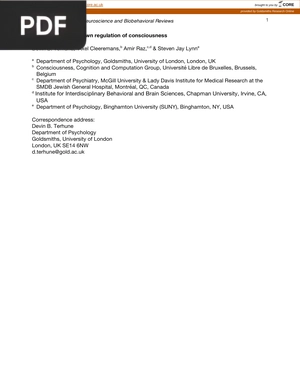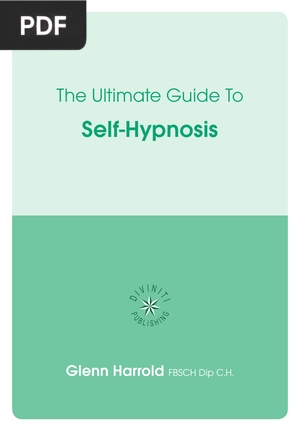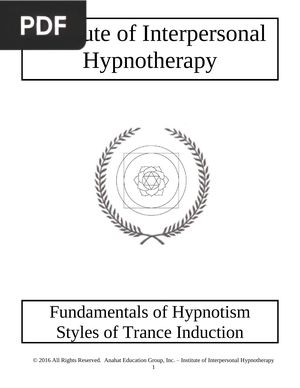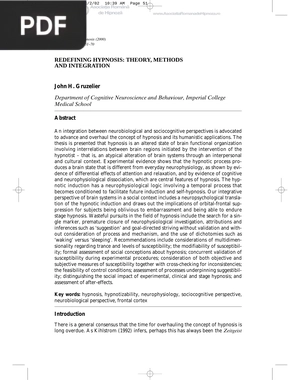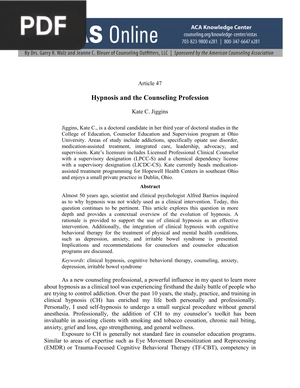Key Concepts in Hypnosis
Author: Campbell Perry
*Please wait a few seconds for the document to load; the time may vary depending on your internet connection. If you prefer, you can download the file by clicking the link below.
Loading PDF...
Document Details
Title: Key Concepts in Hypnosis
Author: Campbell Perry
Pages: 31
Size: 0.38 MB
Format: PDF

